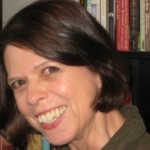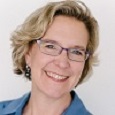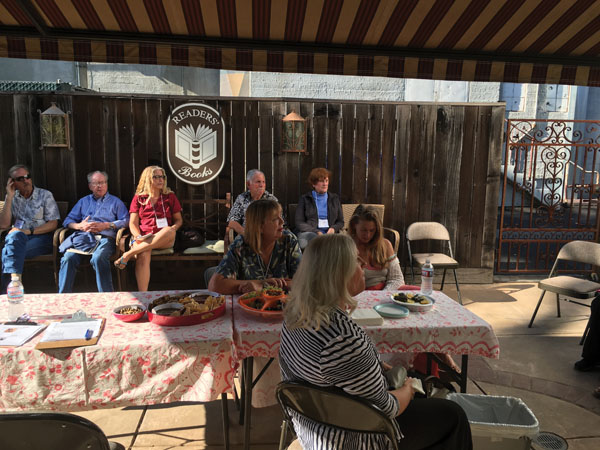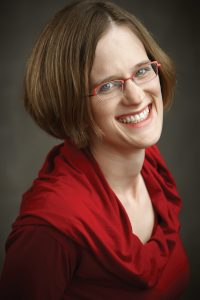PUBLISHED AUGUST 2017
by Deb Vanasse, Reporter,
IBPA Independent -

Deb Vanasse
Large trade shows and conferences aren’t the only places to meet industry professionals. Publishers also benefit from smaller-scale opportunities to network and share ideas.
At trade shows and conferences, there’s a hum in the air: the buzz of hundreds, if not thousands, of industry professionals talking shop and making connections. But beyond these large-scale gatherings, publishers also benefit from smaller-scale opportunities to network and share ideas. Whether connected by geography or shared experience, these small groups of publishing professionals do much to foster quality and offer support.
Collegiality and Collaboration
A regional entity, the
Bay Area Independent Publishers Association (BAIPA) begins each monthly meeting where many gatherings leave off: questions and answers. The first full hour is devoted entirely to Q&A. Though unconventional, the approach reflects the collegial and collaborative spirit of the group, which began meeting in 1979.
"The value of asking and answering questions is huge," says BAIPA board member Judy Baker, a marketing expert at Brandvines. Following the question-and-answer session, members share two-minute introductions, then take in a 90-minute presentation by a guest speaker. After lunch, they can opt for a more in-depth, fee-based workshop led by the presenter from the morning session.
Baker especially appreciates the give-and-take of these regional meetups. “Knowing I am not alone and that I can seek out help from others as well as share my expertise in marketing and branding keeps me inspired,” she says.
And during a 2014 bout with cancer, Baker discovered the depth of relationships she’d forged within the group. "I made it to all of the BAIPA meetings because I received expressions of love and care that helped me get well," she explains. “They loved me when I was bald. They loved me when I was fragile. They love me now.”
Deeming BAIPA gatherings "invaluable," Reclamation Press publisher Corbett Joan O’Toole commutes two hours each way to attend. “The networks I am developing help me to become a better publisher,” she says, citing advice on handling reprints and marketing to a collegiate audience as examples of the assistance she’s received.
BAIPA Board President Becky Parker Geist, owner of Pro Audio Voices, notes that the group has had to switch venues twice in the past six years to accommodate growth from 30 to upwards of 65 attendees. While serving on the board, she has made valuable connections that have helped grow her business. But more important, she says, are the collective expertise and support of the BAIPA community.
Growing Membership

Karla Olson
When small groups expand, it’s important to capitalize on the benefits of growth while retaining a sense of vision and inclusiveness. Meeting regularly since 1994,
Publishers and Writers of San Diego (PWSD) experienced rapid growth when independent publishing took off a few years ago. According to PWSD President Karla Olson, director of Patagonia Books, fewer than 10 publishers attended the group’s monthly meetings during the early years. Now the group has more than 250 members, and it recently expanded into Orange County.
Olson credits the growth to an effort to involve new members as they begin their publishing ventures. “We believe that every independent publisher owes it to their colleagues to produce a professional product,” she explains. “Otherwise, the consumer who has had a bad experience with an independently published book might turn about from the movement and only buy books from major publishers.”
As membership grows, PWSD is well-positioned to attract high-profile speakers who represent entities such as CreateSpace, Audible, Smashwords, Ingram Spark, and
Publishers Weekly. Networking and idea-swapping are encouraged. “We feel grateful that this is a business where we can share industry secrets,” Olson says. “Since no two books are exactly alike, we can tell each other what has worked and what hasn’t.”
Guidelights Productions publisher Elizabeth Yahn Williams credits PWSD for equipping her with the skills and knowledge that led to six book awards. In addition, the connections she’s made within the group have led to writing and speaking opportunities.
A Low-Key Approach
Not every group needs a board and a formal organizational structure. Artemesia Publishing senior partner Geoff Habiger attributes the success of the
New Mexico Book Co-Op to smart choices by founders Paul Rhetts and Barbe Awalt, who continue to lead the group. Membership is free, and the co-op structure allows members to partake in affordable services such as advertising in Cover Reads, a circular the group distributes to regional libraries and bookstores.
Beginning in 2006, the co-op has also sponsored and managed the New Mexico/Arizona Book Awards. "This commitment to building relationships, recognizing high-quality books, and outreach among publishers, writers, and readers has helped make the New Mexico Book Co-Op a strong resource in the region," Habiger says.
A low-key approach contributes to the success of the group, which averages 15 to 25 regular attendees at monthly meetings. "We keep everything very informal, with no dues, no elected officers, or positions of authority," Harbiger explains. "This informality allows people to feel involved and empowered. Everybody is open and willing to share information and best practices."

"We keep everything very informal, with no dues, no elected officers, or positions of authority. This informality allows people to feel involved and empowered. Everybody is open and willing to share information and best practices." -- GEOFF HABIGER, MEMBER, NEW MEXICO BOOK CO-OP
Support and Encouragement

Laura Stanfill
New publishers especially benefit from the support and encouragement of smaller industry groups. After founding Forest Avenue Press, publisher Laura Stanfill joined
Women in Portland Publishing (WiPP) as a way of connecting with other women in her new profession.
“I started my press with a background in journalism, freelance editing, and PR—not publishing—so having this amazing group of women encourage me and share their own experiences was instrumental in me finding my way,” she explains. “Having that resource, and the members’ support and appreciation, allowed me to find confidence in my own work a lot faster than I might have on my own.”
A mix of publishing professionals—booksellers, publishers, authors, graphic artists, editorial service providers, and retired publishers—WiPP began informally. In 2006, Jen Weaver-Neist of Dame Rocket Press took the helm, providing a more formal sense of direction. Regular meetings attended by 10 to 15 women each month sustain the group’s momentum. For those who can’t attend in person, the 550-member WiPP Facebook group offers a means of sharing industry news and job opportunities.
“When women who are trying to break into publishing ask me for advice, I always point them to WiPP,” Stanfill says. “Group members are all very open to helping each other, answering questions, and occasionally hiring freelancers and staffers from the membership. It has excellent networking value, and WiPP members who are in the same field within the industry tend to help each other instead of competing.”
Conference Connections

Some industry gatherings channel the energy of larger conferences and shows. Consider
Literature & Libations, an informal conference add-on that encourages members of the Austin, Texas, book industry to meet in conjunction with events such as BookExpo America, the Texas Book Festival, the Writers League of TX Agents & Editors conference, and
IBPA Publishing University.
PR by the Book began sponsoring Literature & Libations in 2010, attracting an average of 15 attendees at each of three to four meetups per year. During these gatherings, Austin-area publicists, publishers, editors, and other industry professionals cultivate long-standing friendships, create new relationships, and celebrate the community, says PR by the Book business development coordinator Babs Chandrasoma.
And thanks to technology, geography no longer dictates when and where such groups will gather. At the 2017 IPG Summit in Chicago, Cardinal Rule Press publisher Maria Dismondy was inspired by the connections she forged with independent publishers from across the nation. “Just from our initial chats, I felt motivated to try a few new things,” she says.
Having established working relationships face-to-face, six of these publishers, including Dismondy, have opted to continue their discussions online. Using the Zoom platform, they continue to network and share marketing strategies.
Create Your Own Gatherings
Whether connected by geography or a shared experience, publishers laud the benefits of small-scale gatherings. For those who haven’t found a group that facilitates the sorts of discussions and sharing they seek, it’s easy enough to start one. As Dismondy points out, it takes only a single person to launch the effort. “Don’t be afraid to be the one to initiate it,” she suggests.
There’s no need for a grand vision. As Chandrasoma says, it’s fine to start small and keep things simple, the model by which PR by the Book organizes Literature & Libations. “We host the event, create the e-vite, and support the networking,” she explains. “Similar to a meetup, everyone provides their own food and drink. We just select the date, time, and location.”
For more formal gatherings, Stanfill suggests that organizers maintain lists of potential participants and venues. In addition, they can advance their cause by making a point of welcoming newcomers. “Potential members should feel like they can show up even if they’re nervous about not knowing anyone,” she explains.
At small-scale gatherings, the energy is less about buzz and more about one-on-one, long-term relationships. That means groups should steer clear of secrets and competition, says Habiger. “Everybody should share in the successes of the group and its individual members,” he adds. “The emphasis should always be on the books, and the readers, and how to produce a better product for the reader.” ⦁
Deb Vanasse is the co-founder of 49 Writers and founder of the author co-op Running Fox Books, as well as the author of 17 books. Among her most recent are Write Your Best Book,
a practical guide to writing books that rise above the rest, and What Every Author Should Know,
a comprehensive guide to book publishing and promotion, as well as Wealth Woman: Kate Carmack and the Klondike Race for Gold.
Learn more about this topic: